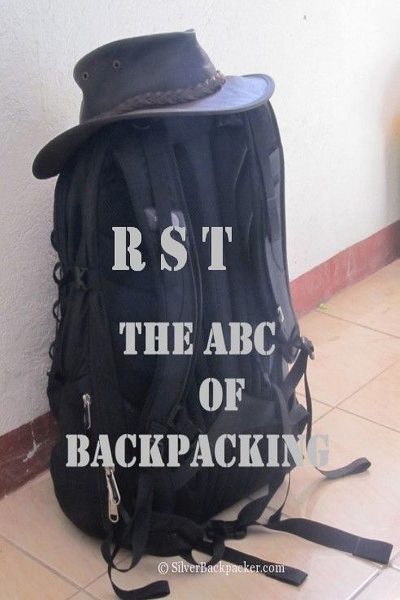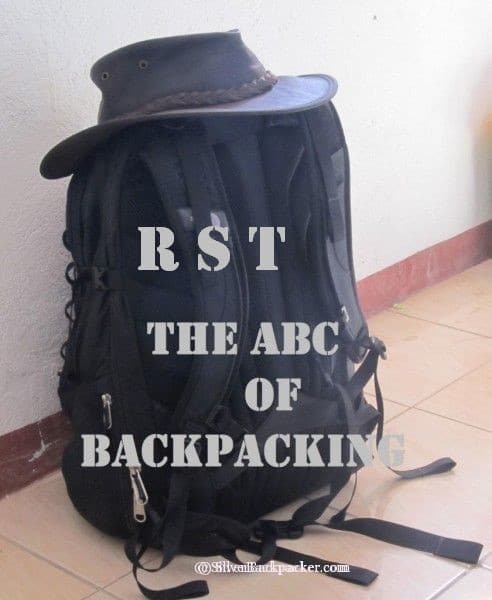R for Railway
Railway Tracks usually consist of steel rails, installed on ties (sleepers) and ballast, on which the rolling stock, usually fitted with metal wheels, moves. Other variations are also possible, such as slab track, where the rails are fastened to a concrete foundation resting on a prepared subsurface – Wikipedia
Those two parallel lines that make travel so easy. There is something that suggests freedom, when you board a train, especially one of those slow stoppers that call in at every station along the way.
Who doesn’t like travelling this way?
A good book to read is The Great Railway Bazaar by Paul Theroux
R for Randoseru
A Japanese derivation of ransel, the obsolete Dutch word for backpack – is a fixture of primary school education, a repository for everything a child needs to get through a day at school. Originally used by Japanese foot soldiers, randoseru were first taken up by japanese schoolchildren in the late 1800s.
R for Residual Income
When you travel you need a few income streams. One of them could be a Residual Income stream. This means that you work once and get paid forever.( Like an Author earns royalties on books he has written)
If you are able to write a book, song lyrics or a film script then do it.
If you live in the UK and would like to have a residual income stream then check out This Opportunity with a leading UK Company.
R for Roadtrip
Everyone likes a Road Trip. You can either do one by car, motorbike or public transport. Plan your route out ahead of time and use it as a guide. More often than not you will find yourself taking detours to visit places you find along the way. Roadtrips by motorbike are fun as you can stop anywhere very easily and drive up offroad narrow trails.
Where have your favourite roadtrips been to?
R for RORO
Roll On, Roll Off ferry.
These ferries are used to transport vehicles as well as passengers between islands, especially in countries such as Indonesia and the Philippines. They are a great way to travel and if you have a hammock you can usually find somewhere to hang it and sleep/travel more comfortably.
TIP :- Check to see if there are any buses on board. If there are then hunt down the driver and ask where their destination and if there’s room for you on the bus too. This saves time at the arrival port.

RORO carrying vehicles from Leyte to Surigao
R for Route
How to get from A to B.
Carry a paper map and plan out your route. Write down the main towns along the way and do some homework on what to see and do in them along the way.
R for Router
Most travellers need a router these days. An extra accessory to carry. You can usually run up to 5 devices from one router. If you are spending time in a new country then find out the best data connection to buy and pop the sim into your router. Don’t use roaming as this will run up a big bill for you.
S for Silverbackpacker
That’s me 🙂
Follow me on Social media if you aren’t doing so already
Facebook Twitter Instagram
S for Simcard
Buy a Local Sim card to save money. Ask locals which is the best one to buy and pop it into your mobile.
S for Solo
One of the best things I learned was that being alone was not so bad at all. I was in-charge of my time and didn’t need the approval of anyone whenever I wanted to do something. I moved freely because the only approval I needed was from myself.
There is no one to wait for. There is no one to argue with.
Sometimes, it gets lonely but when I stop and realise what a gift traveling alone is, the loneliness goes away. I became comfortable being with myself and I think that is the most important lesson of traveling solo.
I am never alone, no one is a stranger, everyone are just all friends I haven’t met yet.
S for Souvenirs
I used to buy souvenirs but have now stopped this practice. They take up too much room in my backpack, add extra weight i don’t want to carry and then gather dust when i get home. The best souvenirs are memories and photos in my opinion.
Do you still buy souvenirs?
S for Station
Bus station, train station. We must pass through both when travelling. The busy city ones can be good places to sleep or hang out. Some even have fold up beds that you can rent for a night.
S for Streetphotography
Take your camera out everyhere with you. Sit in a cafe, order a tea or coffee and people watch. Walk around town looking for photo ops. You’ll be surprised at how many there are.
T for TEFL
Teach English as a Foreign Language. It’s worth investing in a course for TEFL. This is an Internationally accepted teaching qualification that can help earn extra income when on the road and enable you to spend time in one location.
T for Toploading
The Art of riding on the roof of a bus/jeepney/ tricycle or train. There are great views to be had, and lots of fresh air. Be ready to get wet if it rains and also cover up to avoid sunburn.
Make sure to hold on tight to avoid falling off and look out for low hanging branches, cables and bridges.
Its a great way to travel if you are able to climb up there. Always ask the driver or conductor first, so they know you are up there Toploading!!!!!!

Toploading a Jeepney in Mindanao
T for Train
“You are living your life without having any idea what time it is. You could be crossing time zones, but life goes slower than it proceeds.
You can walk in the opposite direction than you are actually moving in..
The train is all about opening and closing doors, it allows you to simply be.
Don’t take the train with a friend, because everyone onboard is already your friend”.(Belgianturtle.com)
T for ( in ) Transit
That No-Mans land at airports where you seem to hang around for ever whilst changing planes. Take the time to find sockets to recharge your electronics, catch up with the blog or some sleep.
Wander around taking photos of the airport, people and furnishings. Build up your personal stock images You never know when your’ll need one or someone wants to buy one.
T for Traveller or Tourist
Tourists don’t know where they’ve been, travellers don’t know where they’re going – Paul Theroux
Which one are you? What is your take on the Traveller V Tourist debate?
Next time I will be exploring the letters U V W
Do you have any ABC’s to add to this series so far. I am interested to hear of any you have thought of.

The ABC of Backpacking RST
This is a series on the ABC of Backpacking. You can catch up on any you have missed below.
ABC of Backpacking – ABC
ABC of Backpacking – DEF
ABC of Backpacking – GHIJ
ABC of Backpacking – KLM
ABC of Backpacking – NOPQ
ABC of Backpacking – RST
ABC of Backpacking – UVW – XYZ


